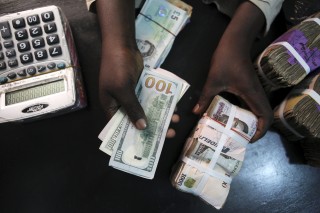The Central Bank of Nigeria (CBN) officially devalued the Naira today and now operates a managed float, marking the end of the currency peg of 197-199 set last spring to curtail imported inflation and ease the burden of the most vulnerable Nigerians.
The value of the Naira is going to be determined by market forces of demand and supply and the CBN will only intervene for a select number of items deemed critical by the Nigerian federal government.
What does this mean for Nigeria?
- US Dollars will be readily available
Access to the Dollar became scarce as a result of capital controls implemented by the government in response to the fall in the price of oil, which accounts for 70 percent of its revenue. The floating of the Naira effectively means that individuals and businesses will be able to get hard currency at banks. There will no longer be a need to depend solely on the black market for foreign currency. The foreign exchange regime has provided domestic banks with access to US dollars, allowing them to meet their internal and external obligations.
- The Naira price for the Dollar is expected to fall
With the Naira readily available, demand for currency on the black market will reduce. With less pressure on the black market, economic analysts expect the Naira to rally against the Dollar especially with the recent rise in the price of oil. The prediction becomes less clear cut however, when we factor in that the gains made from the rise in oil price is offset by a decline in production amidst the attacks on critical pipelines by the Niger Delta Avengers (NDA). Oil production in the country has reduced to 1.45 million barrels per day from 2.2 million barrels per day, meaning the state is receiving a quarter of what it did a year ago. The NDA have vowed to reduce the country’s production to zero.
- Foreign investments will be safer
Investment in the country had slowed drastically with the introduction of capital controls and capital flight had become commonplace in the country since the introduction of capital controls last year. However, this may improve as investors will no longer fear an erosion on the value of their investment.
Investors will be “encouraged” said John Ashbourne, who covers sub-Saharan Africa at Capital Economics while speaking to the Financial Times. The new foreign exchange regime may lead to greater inflows of capital that the country desperately needs. Investment into Nigeria shrivelled as foreigners were deterred by capital controls.








